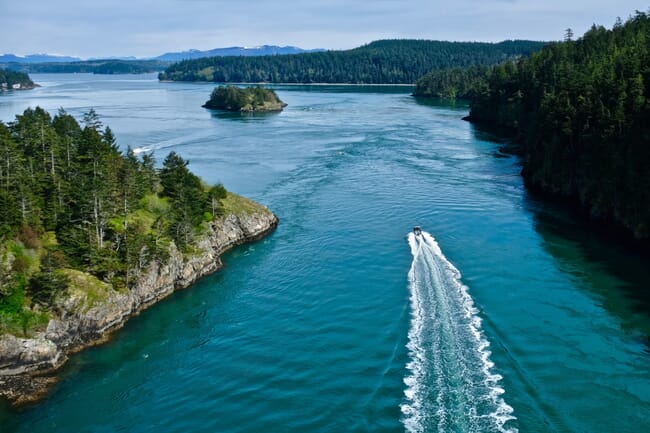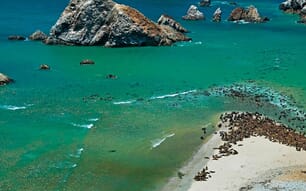
The Washington State Board of Natural Resources is set to vote on a proposed rule this week that would officially end commercial net-pen aquaculture in the state’s marine waters. The measure, championed by Hilary Franz, the state’s commissioner of public lands, seeks to align Washington with California and Alaska, which already prohibit the practice.
The push to end net-pen farming in Washington follows years of controversy surrounding the industry. The state began phasing out net-pen farming of non-native species after a 2017 disaster at Cypress Island, where a catastrophic collapse released hundreds of thousands of non-native Atlantic salmon into the Salish Sea. A state investigation blamed negligence by Cooke Aquaculture for the incident, which triggered widespread ecological and cultural concerns.
While all existing commercial net pens have since been removed, the proposed rule would solidify a permanent ban. The measure has garnered support from several Puget Sound tribes, including the Swinomish, Suquamish, and Lower Elwha Klallam Tribes, who emphasise the importance of protecting native species and ecosystems.
"The State of Washington and Puget Sound tribes are desperately working to reduce pollution inputs, clean up contaminated sediments, and restore shorelines and estuaries and rivers," commented Frances Charles, chairwoman of the Lower Elwha Klallam Tribe, as reported by the Seattle Times.
"We will not give up our fight to continue to protect our environment, our food source, our culture, and our children yet not born,” she added.
However, the proposal has met opposition from the Jamestown S’Klallam Tribe, which argues the ban could stifle opportunities for sustainable aquaculture. The tribe hopes to establish operations focused on farming native steelhead trout and sablefish, asserting that responsible practices could support both economic growth and ecological health.
Non-commercial grow pens for native species, such as those used for restocking programmes, would still be permitted under the proposed rule. British Columbia, Washington’s northern neighbour, is also phasing out net-pen farming, aiming for a complete ban by 2029.
The decision could mark a historic turning point for aquaculture in the Pacific Northwest, as stakeholders continue to debate the future of fish farming in the region.




